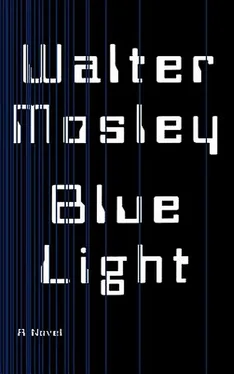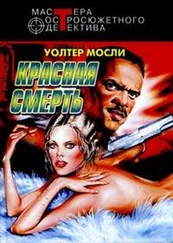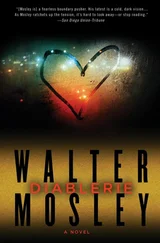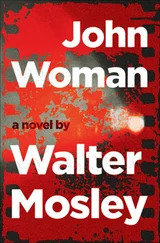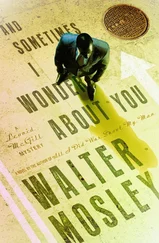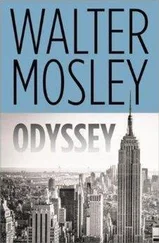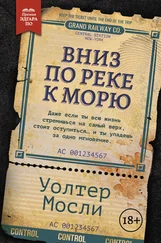Miles Barber was a good detective when he was with the Berkeley Police Department. He was better as a civilian, no longer needing proof or facts or reasonable cause. He carried with him a small thermos full of gasoline and a box of wooden matches. This was because in his interviews he’d learned that he had shot Gray Man, at point-blank range, to no effect. The moment he caught sight of the deceptively diminutive black man with the two fleshy bumps on his face, there would be no need for handcuffs or jail cells, civil rights or judges.
But as good as he was, Miles Barber was grasping at air.
Claudia Heart had repaired to her desert hideaway, taking with her everyone who knew its location. The rest of the Blues, along with me, had vanished completely.
The only lead was a jailbreak. Winch Fargo had escaped from Folsom, with the help of a prison guard. A day or two later the warden, their suspected accomplice, disappeared with his wife and children — leaving no trace.
Ex-Detective Barber went to Folsom but was not admitted even to present his questions. He had to satisfy himself by buying drinks for off-duty prison guards at the Top Tank bar in downtown Represa.
He spent three months and a good deal of his life savings in a flophouse next door to the bar. Over the ensuing weeks he told the prison guards his story — or at least a part of it.
“Yeah,” he’d say with a bitter sigh. “Up there tryin’ to keep the city safe while you got hippies burnin’ their draft cards. They did this to me and nobody even went to jail for it. I’m discharged on disability, but I haven’t even seen the first check yet.”
No one wondered, or at least they didn’t ask, why Barber moved to the town of Represa. The off-duty prison guards accepted the free drinks and humored the freak. He gained their confidence, bided his time. He knew many of the inmates they guarded and told the guards what he knew. They laughed about how stupid some thieves had been and whistled their respect on the magnitude of some unsolved crimes.
It went like that for many weeks before Miles got to buy drinks for the acting warden, Peter Mainhart. Mainhart was just a guard at heart and would never be the permanent warden. That’s why he still stopped by the Top Tank now and again. Because he missed the company of real workingmen. Barber learned this after the second round of drinks. By the fourth rye they were talking about blood and bluity. By the time they had come to the bottom of the bottle, Mainhart confided that the whole case had been turned over to the SIB, the State Investigations Bureau, in Sacramento.
“Goddamned state,” Mainhart said, a little south of sober. “Chief Inspector Bonhomme goes right in there and takes all the records and asks questions up your ass. What the hell does he think it’s like up here? It’s hell, I tell ya, Milo. It’s hell.”
That was twelve minutes past midnight. Ex-Detective Barber was on the 2:42 bus that would make connections to get him into Sacramento by 8:23 the next morning.
“I don’t understand,” Inspector Christian Bonhomme of the SIB said to Miles Barber at 10:44. “You were fired from the Berkeley Police Department?”
“No,” Barber said for the fourth time. “I received a disability discharge after they did this to my face.”
“Who did it?” Lonnie Briggs, Bonhomme’s partner, sergeant, and friend, asked.
The sergeant had a bald head with no eyebrows. Whereas the inspector was tall and gaunt, Briggs was wide and powerfully built.
“The members of the Close Congregation,” Miles said. “You musta read about it. Four people were killed in the park that day.”
The sergeant and the inspector glanced at each other across the desk, but Barber kept cool.
“Yes,” Bonhomme remembered. “The massacre. You were there?”
“I was.”
“Then why weren’t those cult members put on trial? I mean, an eyewitness account from a homicide detective should at least put somebody in front of a judge.”
“I was there but I don’t remember...”
Lonnie Briggs rolled his eyes and sighed.
“I don’t remember, because of this.” Barber pointed at his ruined face. Then he lifted the eye patch, showing the lidless socket that I saw many months later. Just a naked eyeball permanently bloodshot, hardly human, and dazed by the light. Miles lowered the patch and then took out a squeeze bottle of a sanitized solution to put a few drops in an opening at the top of the patch.
“There was trauma to my head,” he told the SIB men. “I was behind some bushes, I heard a scream, and then I woke up in the hospital. But since then I’ve been investigating on my own. I’ve talked to everyone who was there and I’ve got a pretty good idea of what happened and who was responsible.”
“Who?” Bonhomme asked as he brought a cherry pipe to his lips.
Bonhomme struck a match over the small bowl, and Barber stalled. Instead of answering immediately, he rubbed the excess moisture away from the bottom of the hard leather eye patch with his finger.
Finally the ex-detective said, “They knew what he looked like, but nobody knew his name.”
It was a hot day in Sacramento. The window behind Bonhomme was open, and a large black fly floated noisily into the room. That fly struck fear into Miles Barber. He felt the sweat on his head begin to trickle down behind his ear as he watched the insect hover and then bang its body violently in a vain attempt to escape through the upper panes.
“Where are you staying, Mr. Barber?” Bonhomme asked.
“I just got into town... from Represa.”
The name of the prison town grabbed the attention of both the inspector and his sergeant. But Barber barely noticed because he was watching that woolly fly.
“You were up at the prison?” Briggs asked.
Miles jumped up and slapped the fly right out of the air. The stunned creature bounced against the gray-green wall and fell on Bonhomme’s blotter. Before the fly could recover, Barber smashed it with a powerful open-hand blow.
When he lifted his hand all that was left was a mess of fly fragments and blood.
“I hate flies,” Barber said lamely.
“What were you doing in Represa?”
“Winch Fargo,” Barber replied. “Could you close that window?”
Briggs moved to slide the window shut. “What about Fargo?” Bonhomme asked.
“The woman who died in the massacre, Eileen Martel. She visited Fargo every week up until she was killed. This Fargo had murdered her husband.”
Briggs nodded at Bonhomme.
“What about her?” the inspector asked.
“As far as I can tell,” Barber explained, “she was smuggling in some kind of drug. The cult members told me that there was something wrong with this Fargo, like some kinda nervous disorder, and their leader, William Portman, also known as Ordé, gave Eileen something to give Fargo to keep him calm.”
“Did they say what it was she gave him?” Briggs wanted to know.
“Everything with them is blue light. The Blues, blue light, blue gods. If she brought him anything, it would have been called blue somethin’.”
“Did they ever talk about blood?” Bonhomme asked softly.
Ex-Detective Barber knew, at that moment, that he was back on the inside. All he had to do was choose his words carefully, omit some of the truths as he knew them, and he would have what he wanted.
“Yeah,” Barber said. “That fella Portman was always talkin’ about blood and blue light. He was always talkin’ about how the chosen ones, the Blues, kinda like priests, had different blood. We found four of his followers poisoned with some kind of toxic mixture, which had been combined with blood, in their stomachs.”
“We should try to get a look at those files,” Bonhomme said. “Call down to the Berkeley PD, Lonnie.”
Читать дальше
